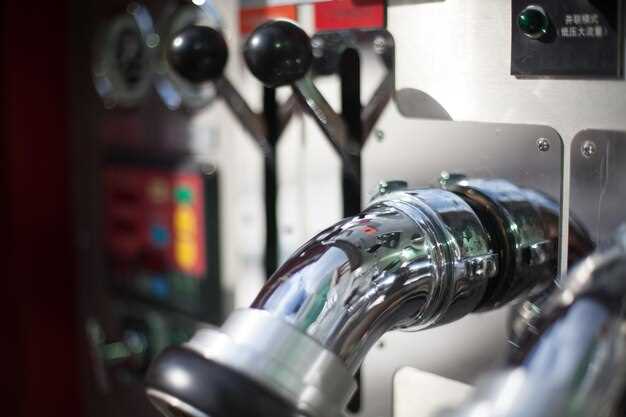

In today’s fast-paced world, optimizing your diesel fuel system is no longer just an option but a necessity for efficient vehicle and machinery performance. By investing in an upgrade of your existing system, you can significantly enhance both fuel efficiency and operational reliability. Modern technologies have made it possible to streamline fuel management, reduce emissions, and ultimately lead to savings in operational costs.
Upgrading your diesel fuel system brings with it a host of benefits that are too significant to overlook. With innovations in fuel filtration and delivery mechanisms, modern systems minimize the chances of injector fouling and ensure cleaner combustion. This translates to not only improved performance but also a lower environmental impact. As compliance with increasingly strict environmental regulations becomes more critical, the advantages of modernizing your fuel system become even more evident.
Moreover, an upgraded diesel fuel system is designed to increase longevity and reduce maintenance requirements. By implementing advanced monitoring and diagnostic tools, operators can identify issues before they escalate, thus avoiding costly repairs and downtime. Overall, embracing modernization in your diesel fuel system empowers you to maximize your operational efficiency and contribute positively to sustainability efforts, making it a wise investment for any forward-thinking business.
Improved Fuel Efficiency Through Advanced Injector Technology

Upgrading to advanced injector technology is a critical step in modernizing your diesel fuel system. These high-performance injectors are designed to deliver fuel more precisely, resulting in optimized combustion. By enhancing the fuel atomization process, advanced injectors ensure that the diesel fuel is mixed more thoroughly with air, leading to a more complete burn. This efficiency not only maximizes power output but also reduces fuel consumption significantly.
Incorporating electronic control systems in injectors allows for real-time adjustments based on engine performance and load conditions. This responsiveness leads to improved engine efficiency across various operating environments. As a result, diesel engines equipped with these updated injectors experience better throttle response and reduced emissions, aligning with environmental standards while lowering operating costs.
Moreover, advanced injector technology minimizes fuel wastage during the injection phase. Precision engineering ensures that the right amount of fuel is delivered at the right time, dramatically decreasing the risk of over-fueling, which can cause carbon buildup and engine wear. This not only boosts fuel efficiency but also enhances the overall longevity of the engine by reducing maintenance needs.
Investing in an upgrade to modern injectors ultimately translates to a more economical operation of diesel vehicles. With better fuel efficiency, operators can enjoy lower fuel costs over time, making this upgrade a valuable proposition for both individual and commercial users. Embracing advanced injector technology is thus indispensable for anyone looking to improve their diesel fuel system’s performance.
Enhanced Engine Performance with Upgraded Fuel Management Systems
Modernizing your diesel fuel system by upgrading to advanced fuel management systems can significantly enhance engine performance. These systems utilize sophisticated algorithms to optimize fuel injection, ensuring that the right amount of diesel is delivered to the engine at precisely the right time.
With an upgraded system, fuel atomization improves, which leads to better combustion efficiency. This means that more energy is extracted from the diesel, resulting in higher power output and improved torque characteristics. As a result, vehicles experience quicker acceleration and a more responsive driving experience.
Moreover, modern fuel management systems are designed to monitor and adapt to changing operating conditions. This adaptability helps in maintaining optimal fuel delivery even in varied environments, leading to consistent performance regardless of load or driving conditions. In turn, this enhances overall reliability and reduces the risk of engine strain.
Additionally, upgraded systems often include features such as diagnostics and real-time monitoring, allowing for timely maintenance and troubleshooting. This capability not only extends the lifespan of the diesel engine but also ensures that performance remains at peak levels throughout its operational life.
In conclusion, upgrading your diesel fuel management system is an essential step in enhancing engine performance. The benefits extend beyond immediate power gains to include improved efficiency, reliability, and longevity, making it a wise investment for any diesel-powered vehicle.
Long-term Cost Savings from Reduced Maintenance and Downtime

Upgrading your diesel fuel system can lead to significant long-term cost savings by minimizing maintenance and reducing downtime. Modern fuel systems are designed with advanced technology that enhances efficiency and reliability, resulting in fewer breakdowns and less frequent repairs. This not only decreases the costs associated with emergency maintenance but also extends the overall lifespan of the equipment.
With an upgraded fuel system, the risk of malfunctions is greatly decreased. Newer components are built to withstand higher pressures and temperatures, and they often feature advanced filtration systems that prevent contaminants from causing damage. This proactive approach to maintenance results in lower operational costs and a more dependable fuel supply, which is crucial for uninterrupted productivity.
Moreover, minimizing downtime is a critical factor in overall cost management. When a diesel fuel system is modernized, the frequency of system failures reduces, leading to a more consistent operational schedule. Less downtime means that vehicles and equipment remain in service longer, maximizing their potential and profitability.
In conclusion, upgrading your diesel fuel system can yield substantial long-term savings. By decreasing maintenance needs and minimizing downtime, businesses can allocate resources more efficiently, ultimately leading to enhanced operational efficiency and improved financial performance.






